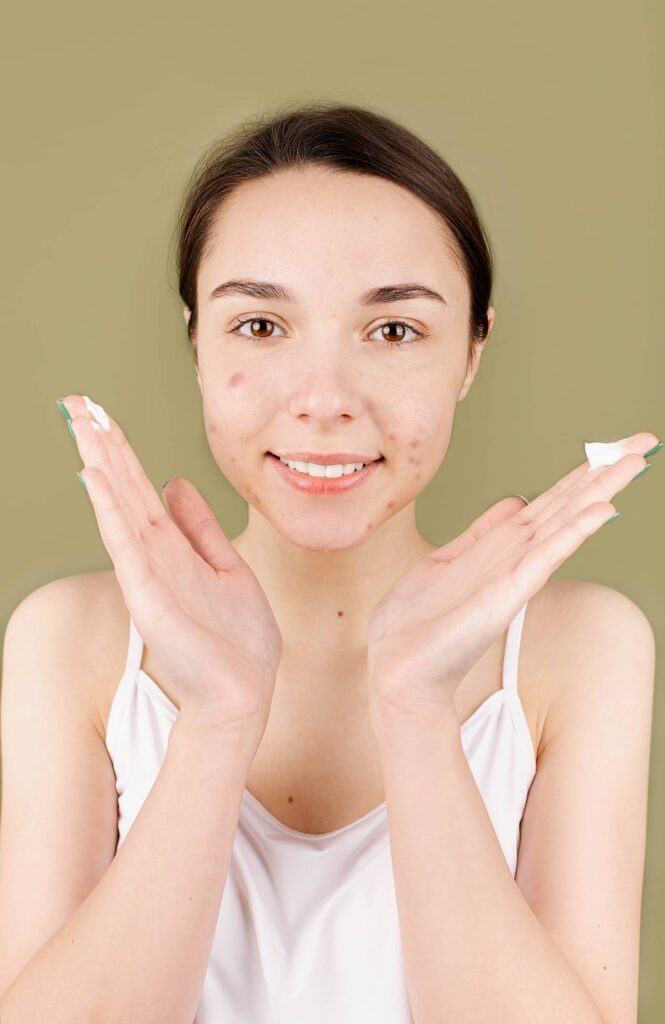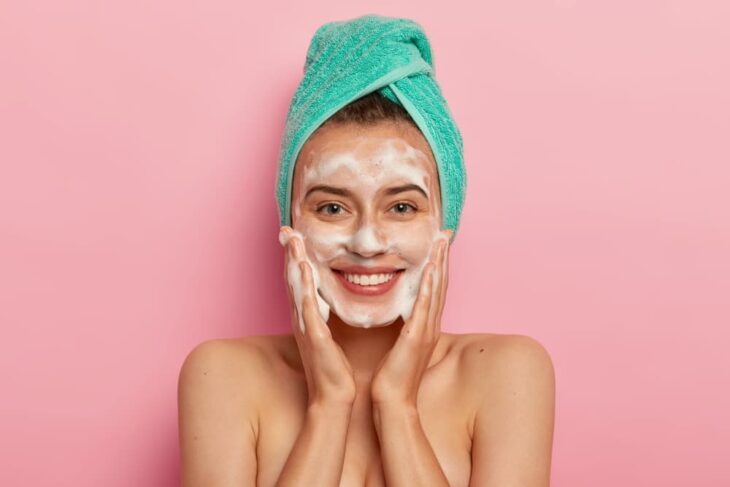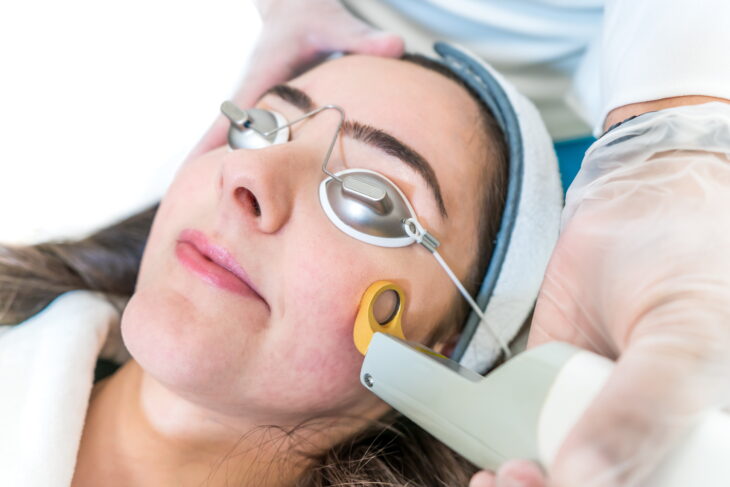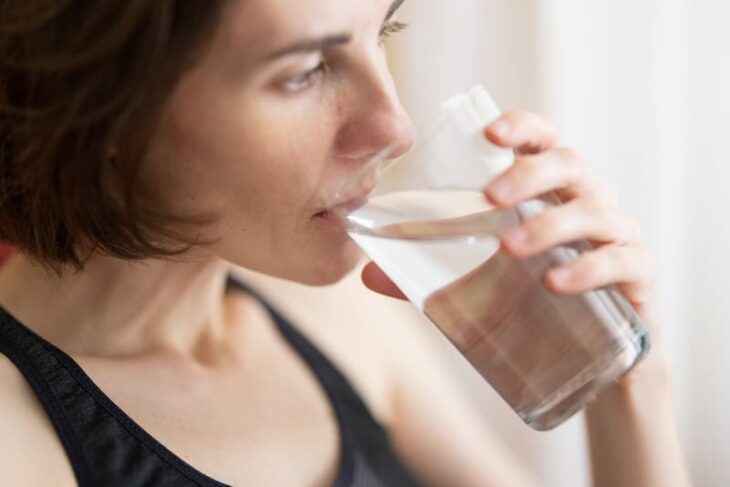Disclosure: Articles may contain affiliate links. As an Amazon Associate, we earn from qualifying purchases (at no additional cost to you). See our full disclosure here.
Last updated on April 15th, 2024 at 03:44 pm
As you likely know, acne is a common skin condition that affects individuals across the globe, spanning various ages, lifestyles, and skin types. It can be frustrating, painful, and even debilitating, impacting not only one’s physical appearance but also self-esteem and quality of life. However, with the right knowledge, tools, and a personalized skincare regimen, banishing acne is possible!
This guide is designed to arm you with strategies to tackle acne head-on, providing insights into its causes, effective treatments, and preventative measures to maintain clear, healthy skin.
Whether you’re facing occasional breakouts or a more persistent form of acne, join us on this journey as we learn the secrets to achieving and sustaining a radiant complexion.

Understanding Acne and Its Causes
Before we dive in, let’s make sure we have a good understanding of acne and what causes it.
Acne stems from a combination of factors, including genetics, hormone fluctuations, stress, and the accumulation of oil and dead skin cells in pores and hair follicles. The types and signs of acne can range from blackheads and whiteheads to more severe forms like cysts and nodules, which require a different treatment approach.
To effectively combat acne, it’s crucial to understand the specific type you’re dealing with. Tailoring your skincare regimen to address these can help in managing and eventually clearing up your skin.
And, the key to preventing future breakouts? It’s finding the underlying cause of your acne, which can vary from person to person. It’s also beneficial to recognize external triggers, like diet and environmental pollutants, that may exacerbate your condition.
You may want to consult a dermatologist for a comprehensive evaluation and personalized treatment plan that can include everything from lifestyle changes to a new skincare regimen to medications and acne scar removal, if needed.

The Role of Skincare in Banishing Acne
Establishing a daily skincare routine is the the first step in preventing acne. This involves gentle cleansing to remove excess oil and impurities, using non-comedogenic moisturizers to maintain hydration, and applying sunscreen to protect against harmful UV rays.
Exfoliation plays a role, too, but it’s essential to not overdo it, as too much can irritate the skin and worsen acne. Products containing salicylic acid or benzoyl peroxide can be effective in treating acne, but be sure to introduce new products gradually and monitor your skin’s response.
Diet and Lifestyle Changes for Clear Skin
Beyond the bottles and formulations that line our bathroom shelves, the path to clear skin is intertwined with our diet and overall lifestyle.
A balanced diet not only nourishes our body but also plays a crucial role in maintaining healthy skin.
Foods rich in omega-3 fatty acids, like salmon and flaxseeds, have anti-inflammatory properties that can help reduce acne flare-ups. Conversely, high-glycemic foods, such as sugars and refined grains, might exacerbate acne for some individuals.
Hydration is another key player; drinking plenty of water each day helps to flush out toxins that could otherwise contribute to acne.
Other lifestyle adjustments can also have a profound impact on skin health. Stress is a well-known trigger for acne; so, incorporating stress-reduction techniques like yoga, meditation, or even simple breathing exercises into your daily routine can be beneficial.
Prioritizing sufficient sleep is vital too, as sleep deprivation can not only worsen acne, but also hinder the skin’s ability to heal and rejuvenate.
Lastly, regular exercise enhances blood circulation, promoting the delivery of oxygen and nutrients to the skin, which can aid in the prevention and healing of acne.

Medical Treatments for Persistent Acne
For those struggling with severe or persistent acne, consulting a dermatologist is a must. Prescription medications, including retinoids, antibiotics, or hormonal treatments like birth control pills, may be recommended depending on the severity and the individual’s health.
In some cases, procedures like chemical peels, laser therapy, or microdermabrasion may be suggested. These treatments can reduce acne scars and improve the skin’s overall appearance, but should only be considered after discussing the potential risks and benefits with a healthcare professional.
The Psychological Impact of Acne
The effects of acne extend beyond physical appearance, often leading to emotional and psychological distress. It’s important to acknowledge these feelings and seek support when needed. Connecting with others who understand what you’re going through can be incredibly helpful.
Practicing self-care and maintaining a positive self-image are key. Remember, acne does not define your worth or beauty. With patience, knowledge, and the right approach, you can overcome the challenges posed by acne and feel confident in your skin.
Wrapping Up
Tackling acne often means taking a multi-pronged approach that requires patience, persistence, and individualized treatment.
By understanding the underlying causes of acne, establishing a conscientious skincare routine, making informed diet and lifestyle changes, and seeking medical treatment when necessary, you can put yourself on the path to clearer, healthier skin.
It’s important to remember that the journey to banishing acne is personal and results vary from one individual to another. While the road may have its ups and downs, the ultimate goal of achieving and maintaining a radiant complexion is within reach.
Also read:
Peptides vs Retinol: Which is Better for Your Skin
Face Basting: The New Skincare Trend Taking Over from Slugging
Glow Up Challenge + 5 Pages of Printables, Including Daily Trackers to Keep You Motivated
You can also find MomsWhoSave on Pinterest, Facebook, Instagram, and Twitter. Join us for updates.
Don’t miss a thing! Subscribe to MomsWhoSave’s newsletter.

Leave a Reply